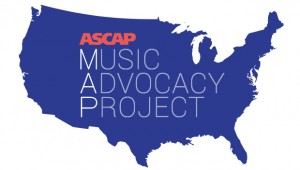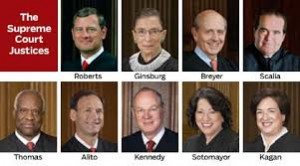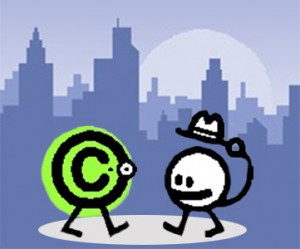Electronic media have had a huge impact on the sphere of intellectual property. Not only have electronic technologies sped the transmission of information to the level of the speed of light, it has also provided opportunities for surreptitious theft, regardless of copyright ownership.
For example, along with China’s relentless economic expansion since the early 1990s, theft of intellectual property appears to be rampant. The issue of hacking by special military units headquartered in Beijing, notwithstanding, the Chinese are ripping off music by others left and right.
A little over nine years ago Bruce Iglauer, president of Chicago-based Alligator Records, testifying before the Committee on Small Business in Washington, D.C., to a group of representatives stated:
“When it comes to ripping off American sound recordings, China is one of the worst. The magnitude of record piracy there eclipses any other country. China is potentially the biggest market in the world for American music. . . maybe even bigger than the USA. With the growth of the Chinese economy and the huge population, the potential for massive sales of American music in China in the next few years is great. . . .[However], it is not a matter of ‘if’ our music will be pirated in China, but rather ‘when’.”
The issue of who owns what, at least in the United States, when it comes to intellectual property—and in this context is included music of all kinds—is not new. To quote liberally from Christopher Winn’s book I Never Knew That About New York (Plume, 2013):
 “One evening in the spring of 1915 Victor Herbert, the Irish-born Tin Pan Alley composer and founder in 1914 of the American Society of Composers, Authors and Publishers (ASCAP) walked into Shanley’s Restaurant [at the time located at No. 1204 Broadway, New York City] and heard a song from his hit operetta Sweethearts being played. Herbert decided to sue the restaurant for violation of copyright, and in 1917, in the first case of its kind ever brought, Supreme Court Justice Oliver Wendell Holmes found in Herbert’s favor, ruling that Shanley’s profited not only by its food but by the music it offered. “If the music did not pay, it would be given up,” said Holmes. Since then performing rights societies have had the right to collect license fees from any performance of musical works under the copyright act. The ruling is still being tested today with regard to downloads from the Internet.”
“One evening in the spring of 1915 Victor Herbert, the Irish-born Tin Pan Alley composer and founder in 1914 of the American Society of Composers, Authors and Publishers (ASCAP) walked into Shanley’s Restaurant [at the time located at No. 1204 Broadway, New York City] and heard a song from his hit operetta Sweethearts being played. Herbert decided to sue the restaurant for violation of copyright, and in 1917, in the first case of its kind ever brought, Supreme Court Justice Oliver Wendell Holmes found in Herbert’s favor, ruling that Shanley’s profited not only by its food but by the music it offered. “If the music did not pay, it would be given up,” said Holmes. Since then performing rights societies have had the right to collect license fees from any performance of musical works under the copyright act. The ruling is still being tested today with regard to downloads from the Internet.”
Speaking of which, in another very recent Supreme Court case, the high court found against Aereo, a company—backed by media mogul Barry Diller—that was taking broadcast signals and re-transmitting them to subscribers for a fee over the Internet. Aereo charged users a low monthly fee to stream live broadcasts of TV channels on mobile devices using miniature antennas that the company hosts. Aereo, which was available in 11 U.S. cities and estimated to be tiny compared to 100 million paying TV customers, says its service does nothing more than what a personal TV antenna would provide. The justices ruled 6 to 3 that Aereo violated copyrights by streaming  broadcast channels to customers. The Supreme Court decision effectively shut Aereo down.
broadcast channels to customers. The Supreme Court decision effectively shut Aereo down.
The advent of Aereo is yet another example of the opportunities presented by the Internet to potentially break up the monopolies of the more traditional media in terms of distribution venues. In Aereo’s case, it didn’t work because of Aereo’s complete disrespect for copyright ownership. But new electronic media have not yet completed their influence. Ever since Netscape, the Internet has dented the intent of copyright law and diminished the monetary value of music made available on the Internet. The Internet has provided a means for people to steal the work (and money) of others. And what used to be thousands of dollars in royalty revenue has become pennies, particularly since the advent of Spotify.
All this raises the constant need for musicians and composers/arrangers to copyright their work wherever and whenever possible at all times. Part of the problem lies in the musical culture’s ethos of sharing music among colleagues without regard to copyright. To quote American poet Robert Frost from his poem “Mending Wall”: “Good fences make good neighbors.” The meaning in this context is that giving formality to one’s intellectual work—writing, composing, performing, et al—such as in a  copyright notice on a work or submitting work to the American Copyright Office in Washington, D.C., lets everyone know who owns the work and it keeps everything above board.
copyright notice on a work or submitting work to the American Copyright Office in Washington, D.C., lets everyone know who owns the work and it keeps everything above board.
There are countless stories of jazz musicians and composers, for example, flagrantly cheated out of their legitimate royalties by unscrupulous managers and publishers merely because the latter knew how to take advantage. In today’s music world, regardless of one’s stature, making a copyright claim—either by putting it on the work or presenting the work for the imprimatur of the government—makes clear who has ownership. In the long run, it makes for professional respect and a better business relationship all around.
Please write to me at meiienterprises@aol.com if you have any comments on this or any other of my blogs.
Eugene Marlow, Ph.D.
July 14, 2014
© Eugne Marlow 2014


